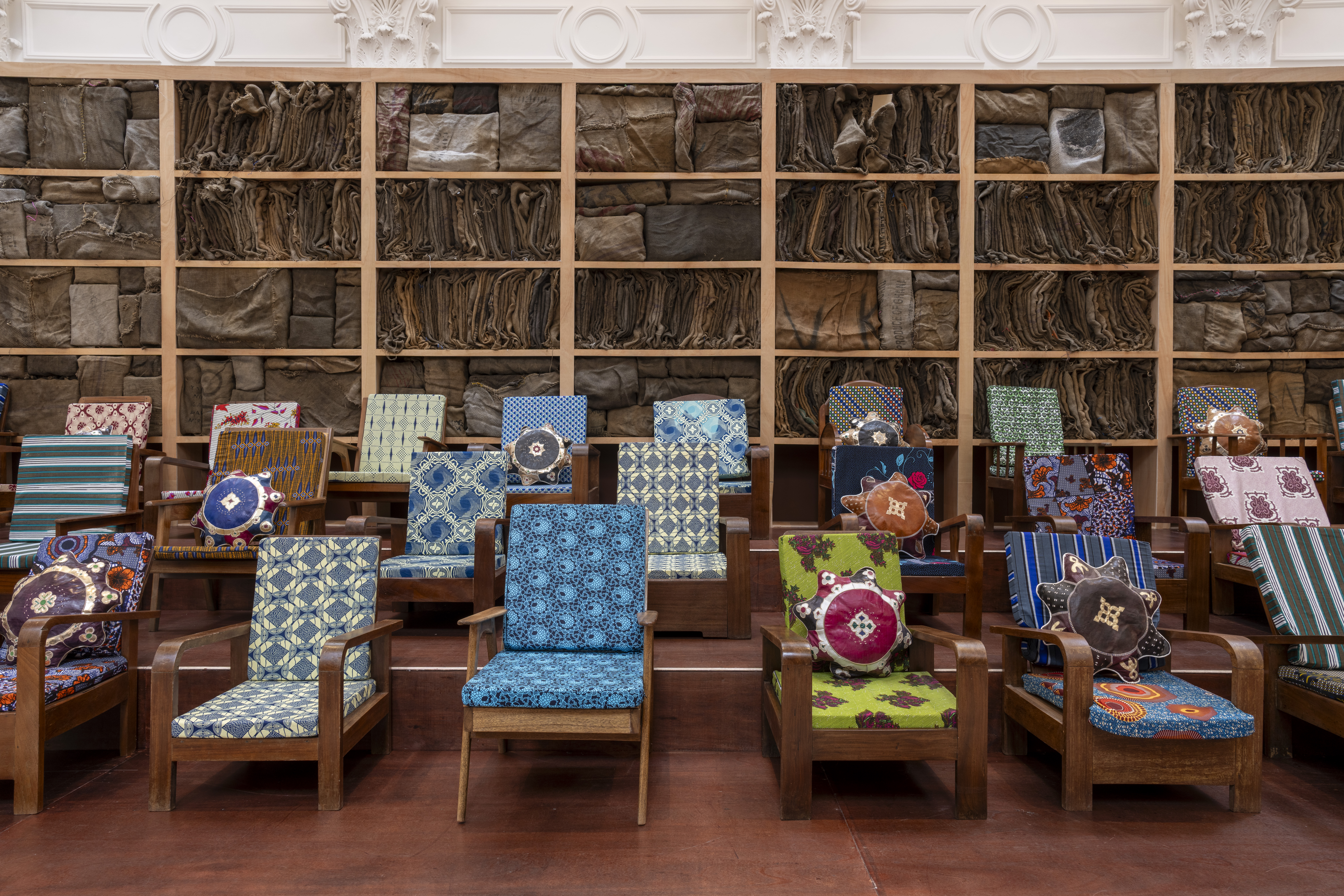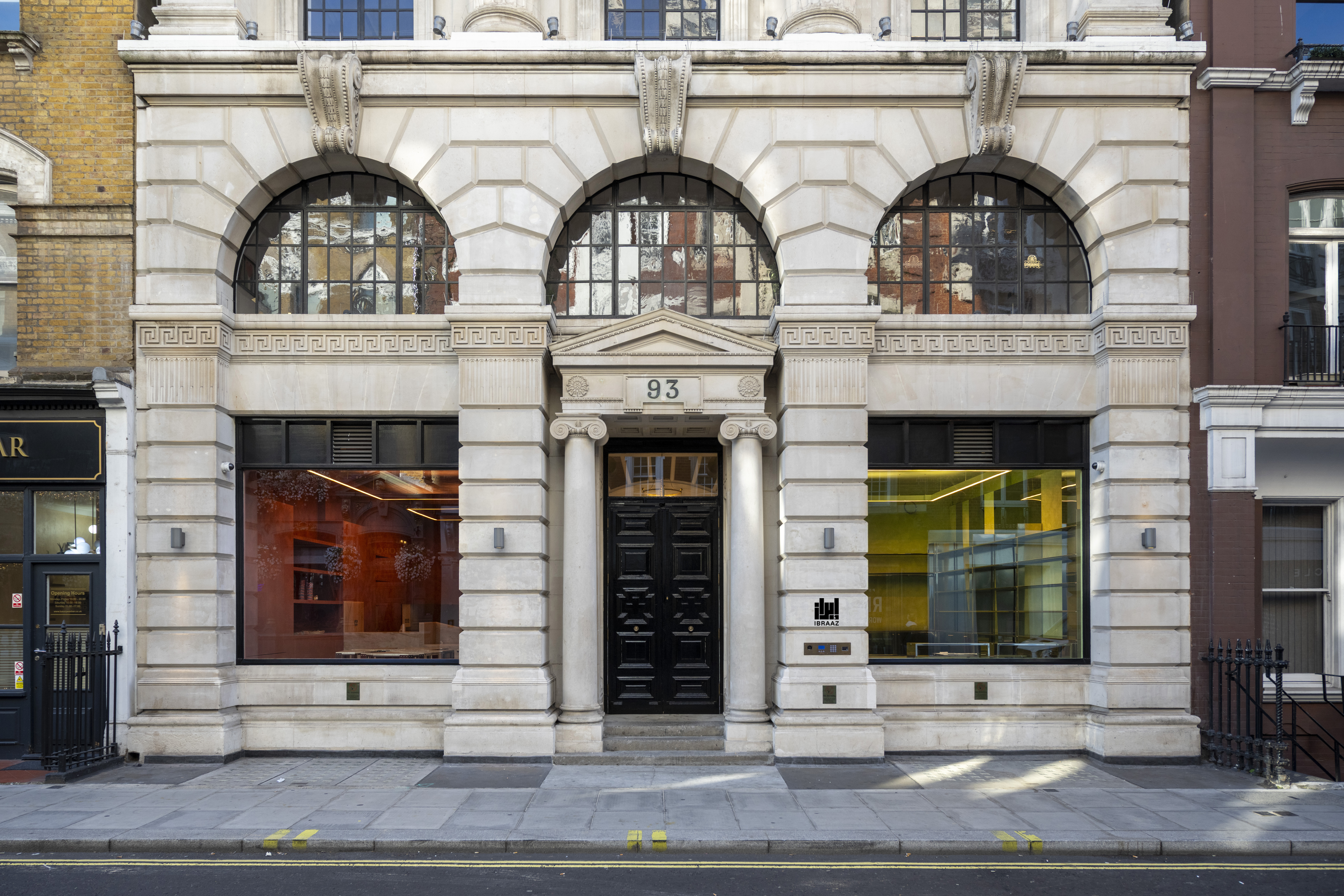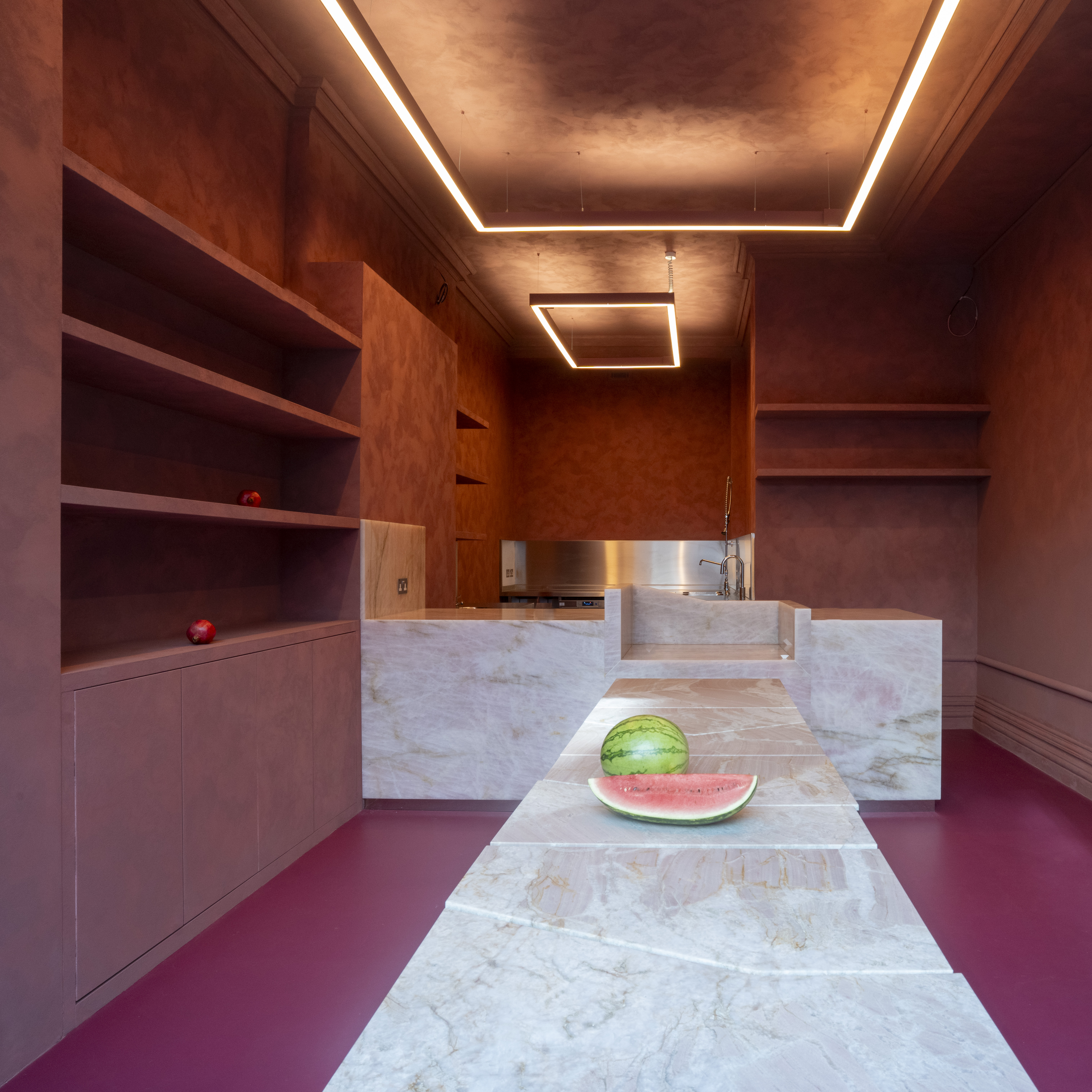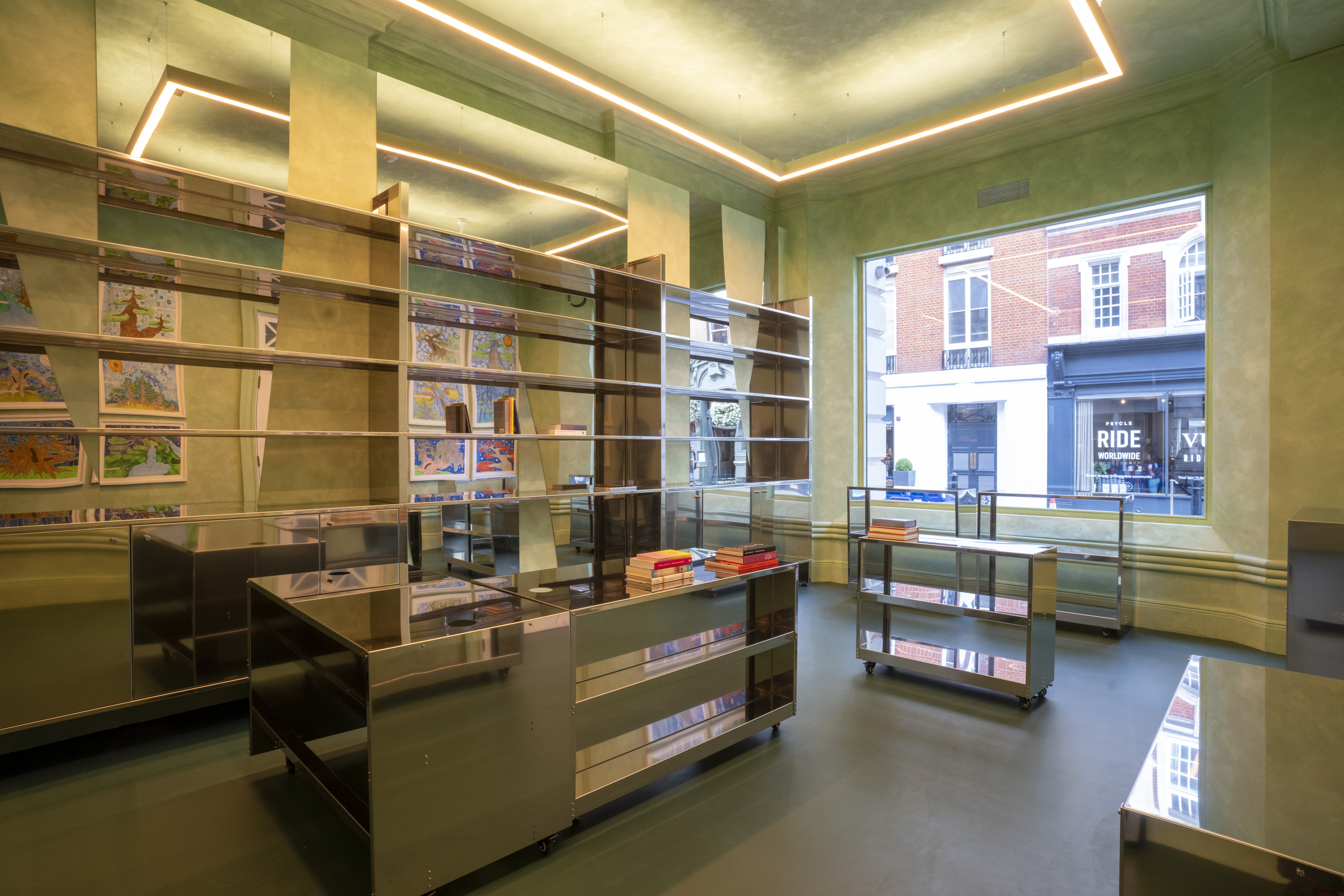Step inside Ibraaz, a new space in London dedicated to arts, culture, and ideas from the Global Majority
Ibraaz, stretching over six floors in central London, offers a place to gather and be inspired

Receive our daily digest of inspiration, escapism and design stories from around the world direct to your inbox.
You are now subscribed
Your newsletter sign-up was successful
Want to add more newsletters?

Daily (Mon-Sun)
Daily Digest
Sign up for global news and reviews, a Wallpaper* take on architecture, design, art & culture, fashion & beauty, travel, tech, watches & jewellery and more.

Monthly, coming soon
The Rundown
A design-minded take on the world of style from Wallpaper* fashion features editor Jack Moss, from global runway shows to insider news and emerging trends.

Monthly, coming soon
The Design File
A closer look at the people and places shaping design, from inspiring interiors to exceptional products, in an expert edit by Wallpaper* global design director Hugo Macdonald.
In a city that often leaves little room to pause, a new institution is attempting something quietly radical. Ibraaz, unfolding across a six-storey, 10,000 sq ft Grade II-listed building, is conceived as more than a gallery or performance venue. It aims to be a site of gathering and imagination, where difficult questions are asked, new possibilities are rehearsed, and hospitality becomes a daily practice.
Founded by Lina Lazaar in 2011 as part of the Kamel Lazaar Foundation, Ibraaz began as an online platform sharing visual culture from the Middle East and North Africa. Its physical arrival marks a new chapter, rooted in a city Lazaar sees as central to the project’s ambitions. 'There is no more diasporic city in the world than London,' she says.

Ibraaz at 93 Mortimer Street, London
‘Come in, feed your belly, feed your mind. And as you go up the building, feed your soul’
Hammad Nasar
Hammad Nasar, director of programmes and content, frames the project as both ambitious and necessary. 'The idea of the Global Majority is not a fixed geography, nor a fixed typology,' he explains. 'It’s an aspiration and a possibility for connection.' This openness shapes Ibraaz’s ethos. Rather than presenting static exhibitions or rigid programmes, it evolves fluidly, with spaces and ideas, and audiences revealing themselves over time. Lazaar describes this as 'a cosmology of interest and of audiences'.
The building itself, reimagined by resident architect Sumayya Vally of Counterspace with support from James Bell of MSMR Architects, embodies that spirit. Across six floors, spaces named after African and Arab communal typologies reinforce Ibraaz’s emphasis on hospitality. At street level, the Maktaba (bookshop) and Oula café invite the city in. The Majlis assembly hall hosts exhibitions and conversations; Minassa on the lower ground floor stages screenings and performances; and Iqra, the library, offers a space for reflection and reading. 'We’re standing here in the middle of our café in residence,' says Nasar. 'Come in, feed your belly, feed your mind. And as you go up the building, feed your soul.'
Adds Vally: 'I love that the spaces at Ibraaz are themed around spaces in a home - kitchen, majlis, prayer room, library - for example; and that the infrastructures of these spaces are meant to host artists’ works that at their heart, are about hosting others. It makes the thinking in the institutional structure inherently architectural. I believe very much in fostering belonging in institutional spaces; and I believe that this happens through gently presenting works in formats that are familiar to our communities. We are making offerings in each of our spaces with underlying logics of “home”, something I think is special and different as an institutional approach.'

The Oula cafe at Ibraaz, designed by Sumayya Vally
The residency model is central to this vision. 'The concept of in-residence is something we really care about,' says Lazaar. 'It’s the idea that magic can happen when you relinquish power to people you trust and whose expertise and vision you want alongside you.'
That ethos runs through the opening programme. Ghanaian artist Ibrahim Mahama transforms the Majlis with Parliament of Ghosts, an installation built from colonial-era furniture and jute sacks collected during the Covid period. ‘What interests me most is the question of repair: how do we bring things back to life, how do we excavate histories through material forms?' Mahama asks.
Receive our daily digest of inspiration, escapism and design stories from around the world direct to your inbox.
Elsewhere, The Otolith Group’s Library-in-Residence turns decades of research into a living archive of books, films, and maps. The Bookshop-in-Residence, curated by the Palestine Festival of Literature and operated by Burley Fisher Books, foregrounds critical global literature. Oula café, led by chef Boutheina Ben Salem, celebrates Tunisian culinary traditions and storytelling through food. Writer and cultural critic Shumon Basar, as curator-at-large for public programmes, shapes a discursive strand of talks and events, while curator Ibed Boujellab leads Ibraaz’s evolving music and sound programme.

Bookshop (Muktaba) at Ibraaz, designed by Sumayya Vally
For Lazaar, the point is to weave these threads into a larger journey. 'You’re not coming here for one piece of content,' she says. 'You’re trying to thread a journey that connects different geographies, across content and medium. We really want this to be an open institution, collaborating with like-minded organisations and creating enough porosities for others to join us.' Nasar adds that the in-residence model allows interactions to unfold cumulatively, deepening engagement over time.
In a city already rich with cultural institutions, Ibraaz’s proposition is to go where others cannot or will not, holding space for difficult, urgent conversations while nurturing generosity and care. 'We care for the space to be a gathering of gatherings,' says Lazaar. 'This idea of hospitality, we don’t say it lightly. It’s an inherent core value we want to embody.'
What begins this October as a bold experiment in convening, connecting, and collaborating gestures already beyond its walls. 'I’m excited for the moment when it’s no longer ours,' Lazaar reflects. 'It’s everyone else’s.' In that aspiration lies Ibraaz’s most ambitious promise: that through gathering, questioning, and imagining together, new cultural forms and new futures can emerge.
Ibraaz is located at 93 Mortimer Street, London W1W 7SS
Opening hours Wednesday to Sunday: 11am–6pm. Free admission